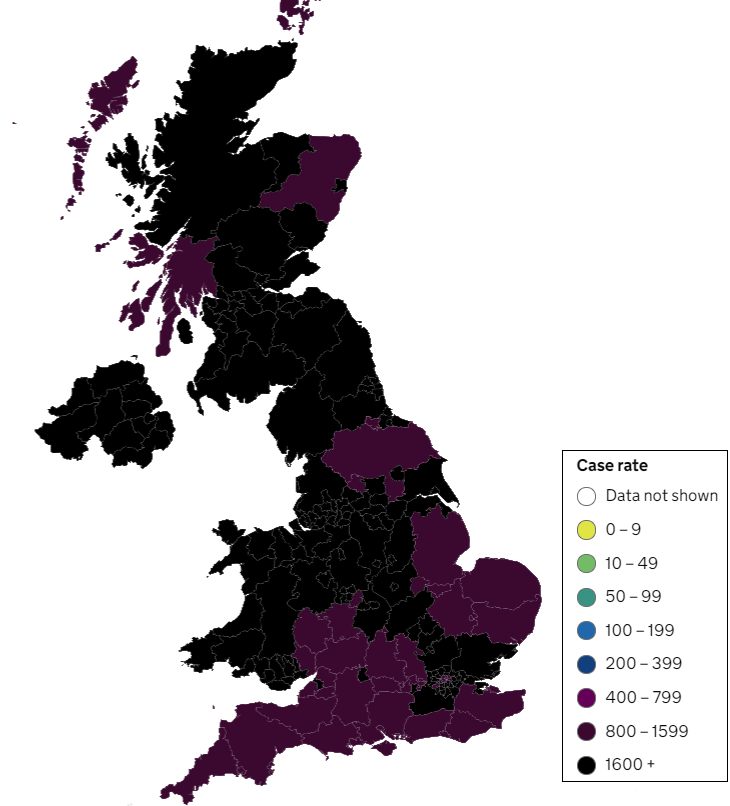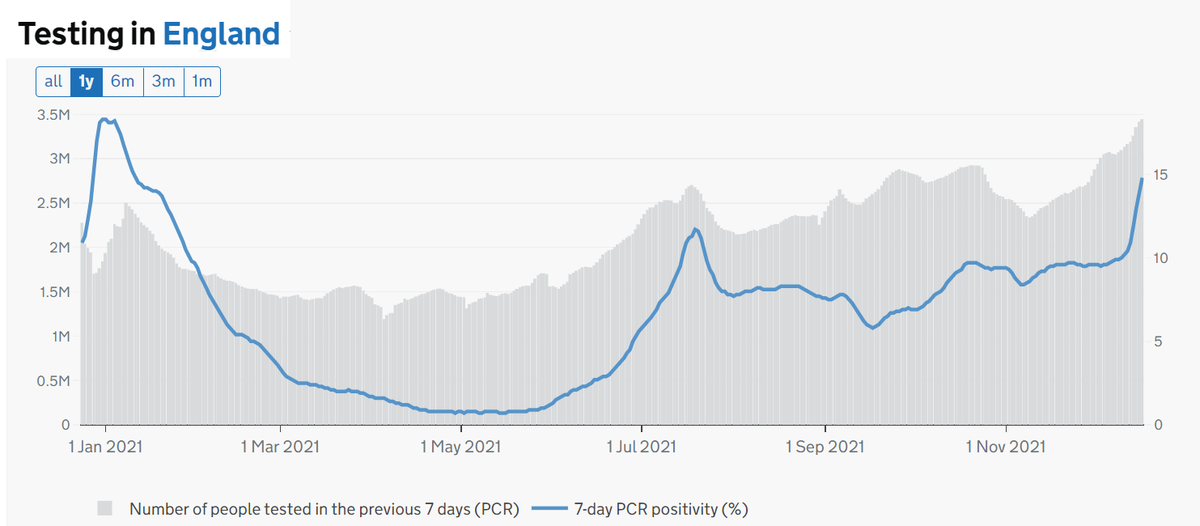COVID sitrep: On call for ICU this weekend. We definitely have another wave of COVID hospital admissions in the UK. As we did in Nov ’20, we are projecting a ‘slow burn’ of hospital admissions rather than a third wave. Let’s hope our forecast is more accurate this time….. 1/13 

The number of COVID cases diagnosed each day in the UK rose more than 10-fold from ~2000 at the start of May to almost 30,000/day now. Meanwhile COVID-19 admissions to NHS hospitals have doubled to ~250 patients/day in the same period (January ’21 peak was over 4000/day). 2/13 

We have nearly 2,000 hospital in-patients with COVID-19 across the NHS and rising. Of these, nearly ~300 patients are in intensive care beds. This compares to the January peak of nearly 40,000 in-patients with 4,000 in ICU. Small by comparison but still a major epidemic. 3/13 

The north-west of England is the worse affected area with NHS hospitals here treating a quarter of all UK COVID hospital in-patients, and one third of the ICU patients. Scotland has more infections than the second wave but hospital admissions are rising more slowly. 4/13 

Friends working in NHS hospitals across the UK tell me most COVID in-patients are not vaccinated, or have an illness which affects their immune system. But some are young fit (unvaccinated) patients in their 20’s and 30’s. We may be seeing more pregnant patients than before. 5/13
Happily, it does seem that fewer ICU patients are needing a ventilator. Many of those admitted to ICU are coping with extra oxygen, or mid-level breathing support such as ‘CPAP’ which involves wearing a tight-fitting oxygen mask. 6/13
We think (and hope) that vaccination is making the difference. Despite large numbers of new cases, fewer patients are coming to hospital and fewer are getting seriously ill. Please accept the vaccine if offered. The benefits far outweigh any risks. COVID is a nasty disease. 7/13 

Remember, it's still early in this latest wave. Hospital admissions peak 2-3 weeks after infections. Patient numbers could still rise steeply. We are planning for a peak of hospital admissions around early August. Plans for ‘surge’ ICU beds are in place in NHS hospitals. 8/13
NHS hospitals are also dealing with other big problems. Emergency Departments are reporting extremely high numbers of patient attendances, while children’s services are coping with an epidemic of viral infections more commonly seen in Winter. 9/13
bbc.co.uk/news/health-57…
bbc.co.uk/news/health-57…
We are also working very hard to maintain routine services for ‘usual’ diseases such as heart disease, stroke and cancer. We must clear a backlog of more than 2 million patients who saw their surgery delayed or cancelled in the past 18 months. 10/13
https://twitter.com/_tomabbott/status/1405791198942482433?s=20
Meanwhile many hospitals are beginning to struggle with staffing as NHS Track & Trace asks our staff to isolate following COVID contacts in the community. Most are double vaccinated and we may find we need to make pragmatic decisions if staffing gets any worse. 11/13 

There are similar stories in many countries. Low-income countries in Africa are at particular risk while the World Health Organisation (WHO) has warned of a major wave of COVID-19 infections across Europe. 12/13
bbc.co.uk/news/world-eur…
bbc.co.uk/news/world-eur…
NHS staff will continue to care for every patient with every illness. COVID numbers are manageable in most areas but numbers are rising. Sadly, people continue to die from this disease. Please stick to government guidelines and #staysafe. Thanks for all you are doing. 13/13 

• • •
Missing some Tweet in this thread? You can try to
force a refresh


















